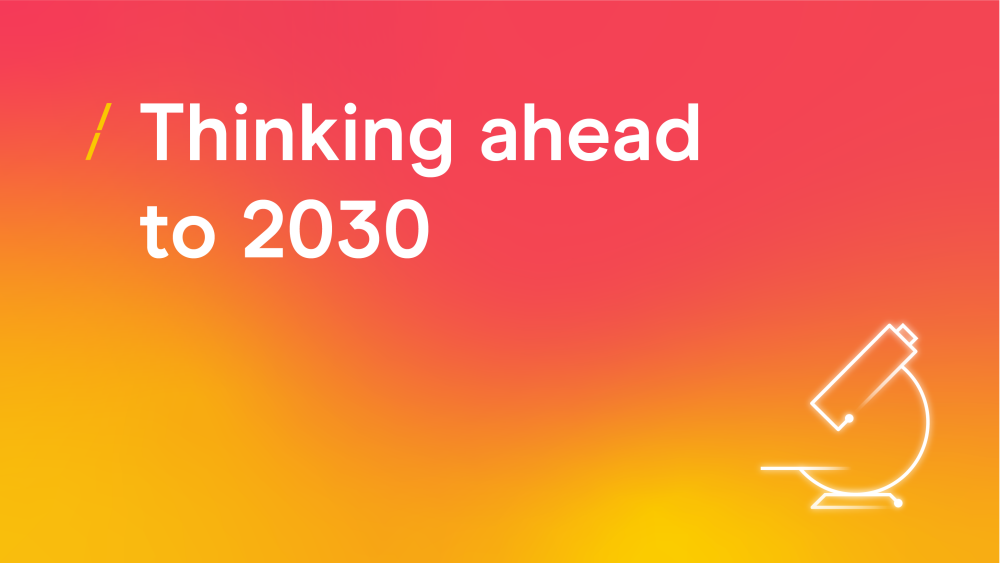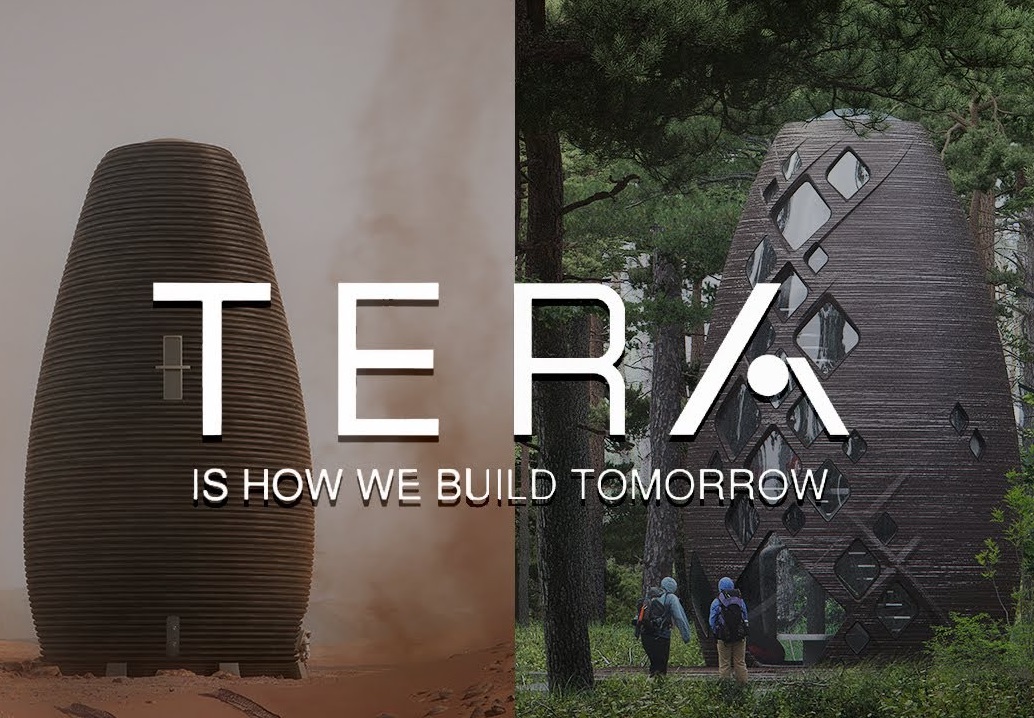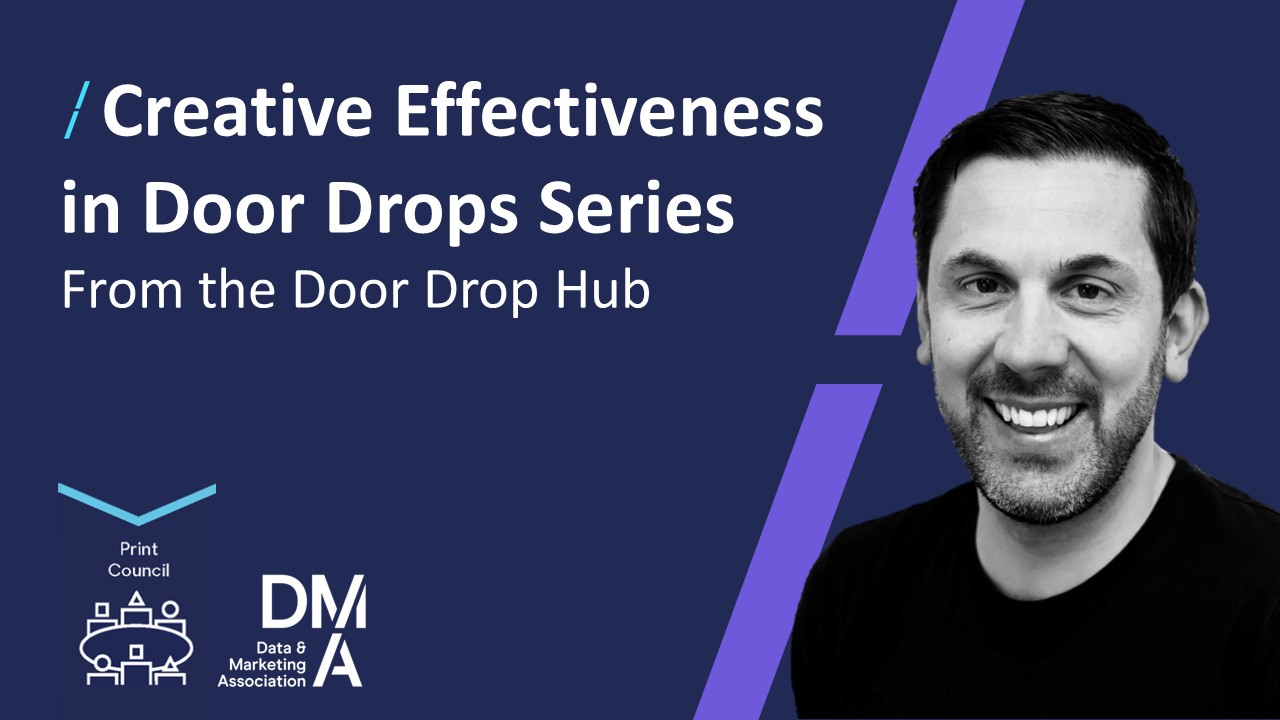Thinking ahead to 2030
14 Nov 2019

Seven the colours of the rainbow.
Seven deadly sins.
Seven days of the week.
And seven core drivers of consumer behaviour.
Some would say 7 is the number of perfection. If so Mintel has found the secret to success and discovered the seven customer trends that will shape the global markets over the next 10 years.
Consumer Trend 2030 analyses the impact that internal and external environmental change has on consumer motivation, choice and behaviour.
The final result is a brilliant report where data is used to predict the future of consumer behaviour and what it means for brands.
In this first article we will explore the first three drivers: wellbeing, environment sustainability and technology.
Brilliant case studies spotted by Foresight Factory will help you find some inspiration.
Let’s start.
1. Wellbeing: Seeking physical and mental wellness
We are about to assist many growing opportunities for brands to become wellbeing partners with their customers.
The concept of wellbeing will be reshaped. From the simple concept of taking care of themselves, customers are assuming a more a holistic life approach where behaviours are underpinned by convenience, transparency, and value.
Consumers are more informed and are becoming more familiar with the production processes of what they find on the shelves. People are now questioning products and ingredients and are demanding for products to enhance life rather than simply make superficial changes. At the same time, their greater awareness of environmental factors is creating demand for products able to lifeguard the environment.
Finally, despite the ‘one-size-fits-all’ approach will still appeal to many, there will also be the emergence of bespoke solutions to meet the many disparate needs of consumers.

CASE STUDY
Wine with wellness properties
Floreat, a new English sparkling botanic, is made with therapeutic herbs and botanicals was launched in June 2019. The brand aims to appeal those consumers who exercise purposeful moderation. The ingridients are selected by qualified medical herbalists and the result is a lower-alcohol, lightly sparkling tipple that “bridges the worlds of wine and wellness”.
2. Surroundings: Feeling connected to the external environment
Predictions see the human population reaching 8.5 billion by 2030.
If this turns out to be true, we’ll be all seeking a better ways to maximise the space we have and share limited resources.
While communication technology will allow people to overcome boundaries, tech will be used to share knowledge about how locally-focused social disruptor enterprises can create sustainable economies.
More and more crowded cities will push urban development into smaller hubs in suburban areas and homes will need to get smaller - flexibility of movement will be everything.
Shared living spaces will increase and people will be forced to reduce their consumption, waste and energy consecutively rethinking how communities work and how urban spaces are designed and used for local community benefit.
Finally, technology is offering flexible working conditions, enabling consumers to become digital nomads.

CASE STUDY
High-tech eco-retreat
Designed by AI SpaceFactory, TERA is a high-tech eco-habitat situated in the woods of upstate New York. This 3D-printed space built with plant-based materials tested by NASA will open in March 2020.
It’s durable, recyclable and compostable it has been designed to specifically fit the topographic of the landscape minimising the structure’s eco impact.
TERA is an example of how buildings can be sensibly designed to complement the surrounding environment.
3. Technology: Finding solutions through technology in the physical and digital worlds
5G is expected to link 125 billion devices by 2030, for now it’s at 11 billion and it’s destined to increase, incorporate elements of VR and AR into various industries, especially tourism and entertainment.
People will become more attracted to flexible freelance opportunities and technology will facilitate different projects and collaborations across organisations. Moreover, as the population growth is slowing, expect to see older people delaying retirement or embracing partial retirement. This will consecutively create the need for new technologies to meet the new set of needs.
‘Phygital’ local community services will undertake retail as consumers will refuse cashless payments and fully unmanned stores.
Finally, healthcare will rely more on online specialist consultations.

CASE STUDY
Algorithm tracks skin health
Atolla is a data-based skincare company that formulates customised serums using machine learning.
In August 2019 it launched an algorithm developed by the Massachusetts Institute of Technology to track skin changes over time.
Atolla is one of the brands using personal data to create predictive models to help consumers understand what impacts their life.
Atolla’s monthly subscription kit comes with skin analysis tools and a personalised serum. The algorithm determines how environmental, lifestyle and emotional factors are affecting users’ skin via the app each month. The serum’s formula will then be adapted accordingly.
Sounds quite challenging getting ready for all of this, doesn’t it?
With our next article we will discuss the other four consumer trends, present and future, that matter most.




Please login to comment.
Comments